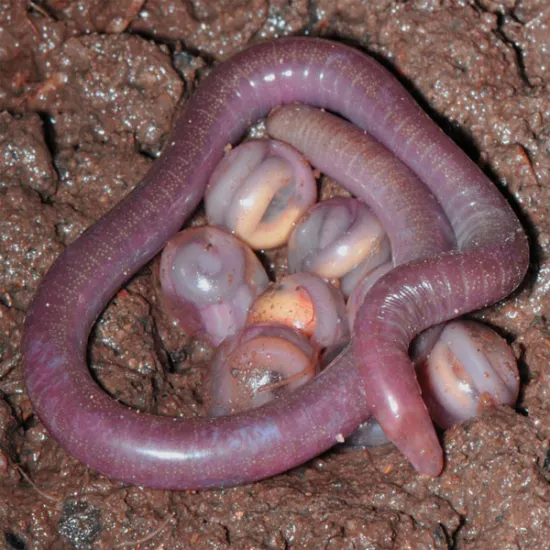New Family of Creepy Worm-Like Amphibians Discovered in India
When you think of amphibians, you probably think of frogs or salamanders, you know, something that at least has the potential to be remotely cute, or at least not terrifying. Well, allow me to introduce you to some newly discovered amphibious worms which are, I think, ugly. Seven new species of limbless amphibians (which fall under the order “Gymnophiona”) have been found hiding in the dirt in India, constituting an entire new family in and of themselves.
This newly found family joins the 180 other families of Caecilians (members of the order “Gymnophiona”) found throughout the world, all of which are kind of creepy and quite different from their fellow amphibians. Caecilians are all worm-like animals that live in wet, tropical regions were you might expect to encounter such horrors. They can grow up to about 3 feet long and engage in a strange mating process during with a female dives deep underground, lays her eggs, and guards them for the 2-3 months they require to hatch, apparently fasting all the while.
While we’re on the topic of eggs, Caecilians have some pretty creepy ones. Their eggs are clear, allowing you to see the writhing babies inside. The babies are also born writhing, resulting in a gross little writhe-pile that’ll make you not want to hear the word “writhe” for a long time. Here, see for yourself.
Skip to 4:25 for the good stuff.
While these new species were discovered in India, their relatives don’t live nearby. In fact, the nearest are 7,000 miles away in Africa. The thought is that these seven species have been evolving on their own for a long time, ever since they lost the rest of their family when landmasses split thousands of years ago. Independently evolved or not, they seem pretty creepy. Suddenly cities and their roaches don’t seem so bad.
(Nature via Discover Magazine)
Have a tip we should know? [email protected]
